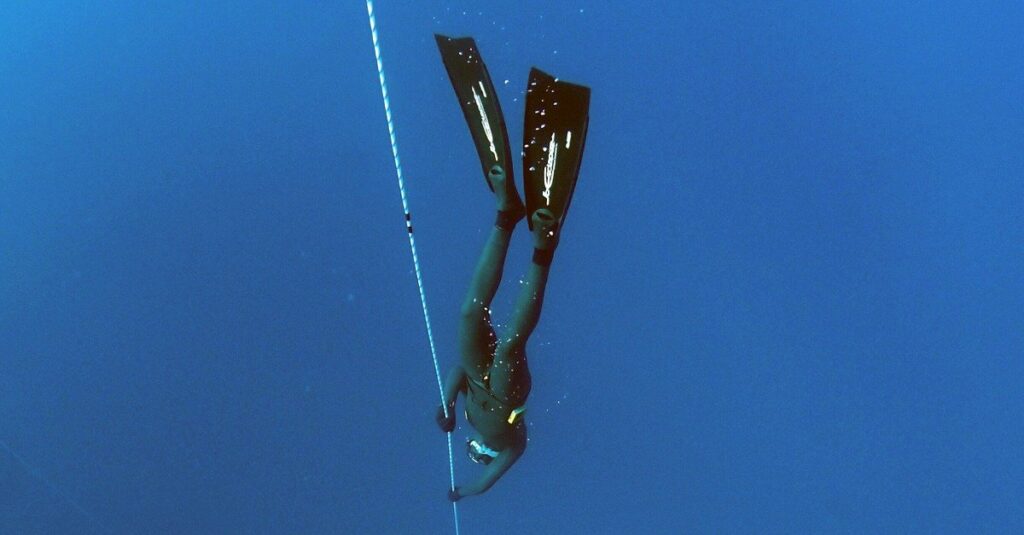

Freediving is a unique sport with a number of competitive disciplines to explore, all of which stretch both the body and the mind.
Freediving is a physically and mentally demanding sport, involving both aerobic and anaerobic metabolism. It requires the mastery of crucial techniques (e.g. ear pressure equalization, apnea / breath-holding) as well as dedicated training to reach higher levels of performance. At competitive level freediving can be an extreme sport but risks are mitigated when participants adhere to safety guidelines. There has been only one recorded death during a freediving competition.
The True Story Book of Freediving Champion Audrey Mestre and the Story of Her Death
View on Amazon: The Last Attempt (Opens new tab)


Top rated read
Perhaps you’ve read about freediving or seen it on TV but don’t really understand what it is. Our article tells you more about the sport of freediving and some of its main features.
What is the aim of freediving as a sport?
The most obvious aims of freediving as a sport are to dive as deeply as possible, for as long as possible, all on a single breath. While they are diving, freedivers are also aiming to stay safe and not cause themselves any physical damage or pain.
Competitive freediving contains a range of different diving disciplines with slightly different goals and rules. For example:
Static apnea: holding a breath underwater for as long as possible.
Dynamic apnea: covering the maximum distance possible underwater on a single breath.
Constant Weight: descending on a single breath down to a declared depth without varying weight.
Variable Weight: descending on a single breath down to a declared depth with the assistance of additional weight which is then discarded for ascent.
No limits: descending on a single breath down to a declared depth by whatever means the diver prefers, including weights or a weighted sled.
Individual competitions and disciplines can vary on the equipment and preparation they allow (e.g. fins, weights, oxygen before diving).
Is freediving an extreme sport?
Freediving can be counted as an extreme sport from several perspectives.
At elite level, freediving pushes the limits of what is humanly possible around exposure to high water pressures and apnea. The deepest freedive recorded in the Guinness Book of Records was achieved by Herbert Nitsch in 2012 in Greece, with a 253 m “no limits” freedive using a weighted sled. The longest recorded breath-hold was 24 minutes and 37 seconds, achieved in 2021 by freediver Budimir Šobat.
In recreational freediving the depths and lengths of dives are usually less extreme but the risk of accident or death are much higher and more in line with other extreme sports. While there has only been one recorded death in freediving competition, analysis of figures collected by the Diver’s Alert Network (DAN) for deaths between 2004-2017, indicate an average of at least 51 recreational freediver deaths per year.
